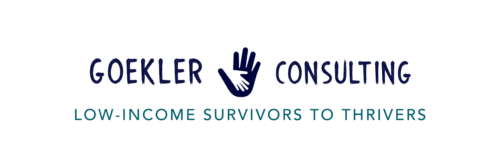The COVID-19 pandemic has been hard on all of us, particularly for many older adults who don’t feel comfortable leaving their homes, especially prior to the COVID-19 vaccine which become available earlier this year. It was equally isolating for a lot of people who sheltered-in-place alone, regardless of age.
Some of us already had digital literacy skills and found familiar ways to connect with those we love without being able to visit each other in person. A number of older adults have reported that they have learned new digital literacy skills, including how to use iPads, computers, smartphones, the GrandPad, email, video chat, Facebook, YouTube, and other modes of communication to help them stay connected to the outside world.
So, how do we stay healthy, increase our skillset, and reduce isolation during one of the world’s largest health crises of our time? Here are some ways people have reported reducing isolation and being productive while staying at home.
DISCOVER LOW-COST DIGITAL LITERACY TOOLS
Did you miss out on free or low-cost tools to make getting online possible? Determine if you are eligible for low-cost Internet, PCs, laptops and training, free cell phone and service, and a reduced-price Amazon Prime account. Access basic Internet and computer training, and acquire the skills needed to successfully navigate the world’s digital landscape.
ENTREPRENEURSHIP – TIME TO START A BUSINESS?
Have you thought about becoming an entrepreneur? A number of people have become entrepreneurs after losing jobs or wanting or needing to change careers during the pandemic, picking up business, web development, and other skills that are helpful for business start-ups. Parents who worked from home needed ways to make money from home while caring for children who couldn’t go to school while daycares and businesses were often closed.
People have turned to these and other tools to help them get started.
ACQUIRE NEW HARD SKILLS
With in-person schooling not available for long periods of time, people often turned to virtual learning to acquire new skillsets, some with the goal of increasing promotional opportunities at work, and others desiring to learn new skills to start new careers. A number of people have used this time to acquire new hard skills and enhance opportunities for upward mobility in the workplace.
- Free Online Courses From the Best Colleges in the US: Princeton & More (businessinsider.com)
- 1,700 Free Online Courses from Top Universities | Open Culture
- 7 elite universities offering free online classes (theladders.com)
- Top Free Online Courses | Learn Online with Coursera
- Free Online Courses | Stanford Online
- edX | Free Online Courses by Harvard, MIT, & more | edX
- Free Online Courses | Harvard University
- Free Online Science Courses and Classes
GET A TUITION-FREE UNIVERSITY DEGREE(S)
With so many of us stuck at home, for a number of people, it has seemed like a decent time to pursue a college education. As people have lost jobs, it has been a time of opportunity to seek education as a means of getting ahead. The only current tuition-free online degree programs are accessible to people worldwide and are accredited in the U.S. There are fees associated with the degree programs, but they are very low in comparison to other degree programs available in the U.S. University of the People offers a number of certificates, Associate, Bachelor, and Master Degree programs with a focus on Business Administration, Computer Science, Health Science, and Education.
In some states, community college tuition is free for those who are eligible.
OLDER ADULTS LEARN NEW SKILLS
OLDER ADULTS may often get a free education in their home state. The resources below discuss free educational opportunities for older adults at colleges and universities in the U.S.
- Free or Cheap College Courses for Older Adults in All 50 States
- Free & Cheap College Classes for Senior Citizens (By State & University)
OLDER ADULTS CONNECT WITH OTHERS & HAVE FUN REMOTELY
DOROT Classes & Activities
Family Eldercare’s Lifetime Connections Without Walls “is a telephone-based activities program that provides opportunities for older adults to connect with others across the country. We offer social and educational sessions, support groups, and friendly conversation, all from the comfort of home.”
“The Senior Center without Walls Program provides on-line learning opportunities for seniors and holds four sessions a year in the Winter, Spring, Summer & Fall with classes listed in a corresponding catalogue.”
Well Connected and Well Connected Español “provide laughs, intellectual stimulation, inspiration, conversation and more, all via groups you can join from home, by phone or online.”
EXERCISE FROM HOME
Gyms were closed. People often turned to virtual exercise apps, and dieting tools, such as NOOM to get through the pandemic. Others purchased or used already acquired personal exercise equipment at home to get and keep in shape.
Connect here for additional examples of online exercise classes:
Jewish Family Service San Diego, Exercise with Aviva provided chair exercises from the safety of one’s home.
Silver Sneakers is the nation’s leading community fitness program designed for seniors and has added digital resources to support its members. Check for program eligibility.
The Happiness Effect provides seated stretching.
ONLINE MEDICAL & MENTAL HEALTH APPOINTMENTS
Many people, including myself, have relied on virtual and phone visits with medical providers. A number of health plans have covered benefits that include virtual services, such as doctor’s visits and therapy via phone, video chat, or other means. Downloading appropriate apps and finding new ways to connect with providers virtually has been the name of the game during the pandemic.
SAMPLE TELEMEDICINE OPTIONS FOR THE UNINSURED OR UNDER-INSURED:
There are exciting ways to cheaply (and even for free!) incorporate digital literacy skills, develop entrepreneurship skills, start a business, acquire hard skills, take classes to increase skill sets, get an education, connect with others using digital technology, exercise remotely, and attend doctor’s appointments without having to leave the home—which are all ways to help reduce isolation and increase wellness and upward mobility during the worldwide crisis that will definitely be noted in the history books.
Photo by Anna Shvets from Pexels


